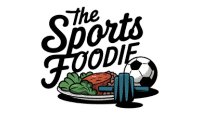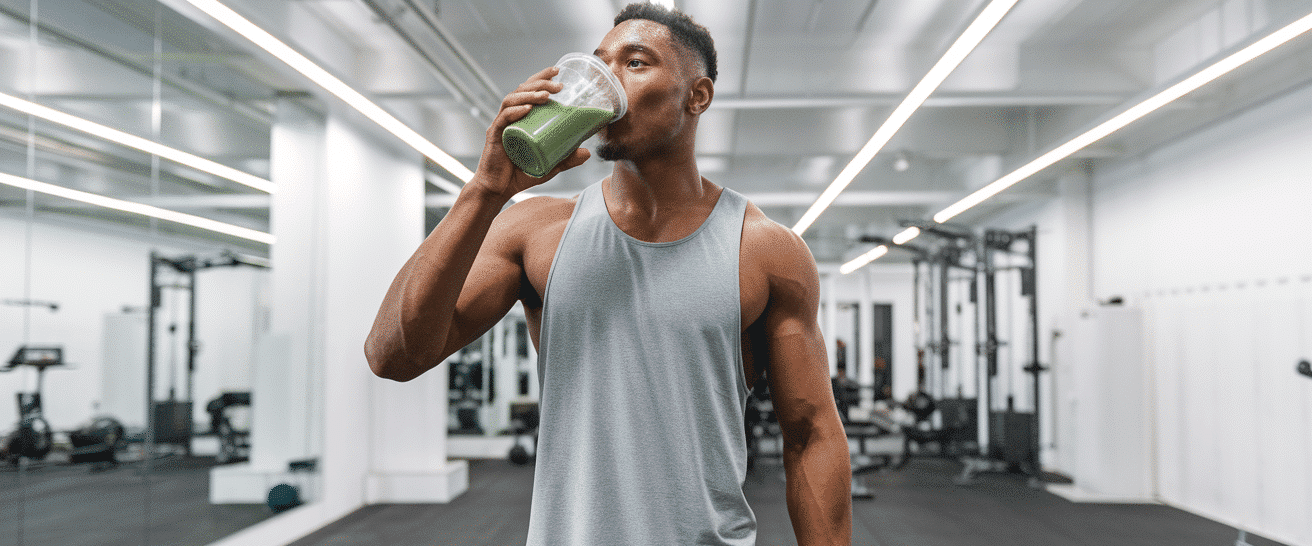After a tough workout, your body is primed for recovery. Strength training breaks down muscle fibers, and rebuilding them requires the right fuel at the right time. This is where the concept of the nutrition window comes into play.
Many athletes swear by the 30-minute rule, claiming it’s the best time to refuel for optimal recovery. But is this backed by science? In this article, we’ll explore the truth behind timing your post-workout meals and how it can help you maximize muscle repair and performance.
Whether you’re a casual gym-goer or a seasoned athlete, understanding the science of recovery can make a big difference. Let’s dive in and uncover practical tips to help you get the most out of your efforts.
What Is the Post-Exercise Nutrition Window?
Your muscles are like a construction site after exercise—they need the right materials to rebuild. This is where the post-exercise nutrition window comes into play. It’s the time after your workout when your body is primed to repair and grow muscle tissue.

Think of it this way: if your muscles are a house under construction, protein and carbs are the bricks and cement. Protein provides the building blocks for muscle growth, while carbs supply the energy needed for the process. Together, they help your body shift into an anabolic state, where it builds rather than breaks down tissue.
For years, fitness communities emphasized a strict 30-minute window to refuel. The idea was that eating within this timeframe maximized recovery. However, recent studies suggest this window is more flexible. While eating soon after exercise is beneficial, your body can still absorb nutrients effectively for several hours.
So, whether you’re grabbing a quick shake or sitting down for a meal, the key is to provide your body with the right fuel. Timing matters, but it’s not as rigid as once thought. Focus on quality protein and carbs to support your recovery and performance.
How Does Muscle Protein Synthesis Work?
Ever wondered how your muscles rebuild after a workout? The answer lies in a process called muscle protein synthesis. This is your body’s way of repairing and growing muscle tissue, and it’s essential for recovery and strength gains.
Think of protein as the building blocks for your muscles. When you eat protein-rich foods, your body breaks them down into amino acids. These amino acids act like LEGO pieces, repairing damaged muscle fibers and building new ones. Without enough protein, your muscles can’t recover effectively.
Carbs play a supporting role in this process. During exercise, your muscles use glycogen (stored energy) as fuel. After a workout, your glycogen levels are low. Eating carbs helps replenish these stores, giving your body the energy it needs for protein synthesis.
The Role of Protein in Muscle Repair
Protein is the MVP of muscle repair. It provides the amino acids your body needs to rebuild muscle fibers. Foods like chicken, Greek yogurt, and lentils are excellent sources of high-quality protein. Even eggs, a breakfast staple, pack a powerful punch of amino acids.
Here’s a quick guide to some of the best protein sources for recovery:
| Protein Source | Benefits |
|---|---|
| Chicken Breast | High in lean protein, low in fat |
| Greek Yogurt | Rich in protein and probiotics |
| Lentils | Plant-based protein with fiber |
How Carbs Support Muscle Recovery
Carbs are like the fuel tank for your muscles. After a workout, your glycogen stores are drained. Eating carbs helps refill this tank, ensuring your body has the energy it needs for recovery. Sweet potatoes, bananas, and oats are great options.
A 2018 study showed that while carb timing matters, your daily intake is more important. So, focus on eating enough carbs throughout the day to support your training and recovery.
Here’s a simple table to help you choose the right carbs:
| Carb Source | Benefits |
|---|---|
| Sweet Potatoes | Rich in complex carbs and vitamins |
| Bananas | Quick energy and potassium |
| Oats | Fiber-rich and slow-digesting |
Is the 30-Minute Anabolic Window a Myth?
Have you ever questioned the 30-minute rule for refueling after a workout? For years, athletes and fitness enthusiasts have sworn by this “golden window.” But is it as critical as we’ve been told? Let’s dive into the research and see what science has to say.
Research on Nutrient Timing
A 2017 study found that consuming protein before or after a workout had the same effect on muscle growth. Similarly, a 2013 meta-analysis showed no significant strength differences between those who ate immediately after training and those who waited. This suggests that the 30-minute window might not be as rigid as once thought.
Another study compared athletes who ate within one hour of their workout to those who waited longer. The results? Both groups experienced similar recovery and performance gains. This challenges the idea that immediate refueling is a must.
Debunking Common Misconceptions
One of the biggest myths is the “now or never” mentality. Muscle repair isn’t a one-time event—it continues for 24+ hours after training. Think of it like recovering from a marathon. You don’t need to eat everything at once; consistent fueling over time is key.
Another misconception is that protein shakes “expire” after 30 minutes. This simply isn’t true. Your body can still absorb nutrients effectively for several hours post-workout.
However, there’s an exception: fasted workouts. If you train on an empty stomach, refueling sooner can help kickstart recovery. But for most people, the 30-minute rule is more flexible than we’ve been led to believe.
| Myth | Fact |
|---|---|
| You must eat within 30 minutes. | Nutrient timing is flexible; eating within a few hours works. |
| Protein shakes expire after 30 minutes. | Your body absorbs nutrients for hours after exercise. |
| Immediate refueling is a must. | Muscle repair continues for 24+ hours post-workout. |
What Should You Eat After a Workout?
Refueling after a workout doesn’t have to be complicated—just effective. Your body needs the right combination of protein and carbs to repair muscles and replenish energy. Whether you’re into resistance training or cardio, the right meal can make all the difference.
Best Protein Sources for Post-Workout Meals
Protein is essential for muscle growth and repair. Aim for 20-40 grams of protein after your workout. Here are some top options:
- Whey Protein: Fast-digesting and perfect for quick recovery.
- Casein: Slow-digesting, ideal for sustained protein intake.
- Turkey Wrap: A convenient, protein-packed snack.
- Grilled Salmon: Rich in omega-3s and high-quality protein.
Choosing the Right Carbs for Recovery
Carbs help replenish glycogen stores, giving your body the energy it needs. A 3:1 carb-to-protein ratio is often recommended. Here are some great choices:
- Sweet Potatoes: Packed with complex carbs and vitamins.
- Oats with Berries: A fiber-rich option with an antioxidant boost.
- Bananas: Quick energy and a great source of potassium.
For a balanced meal, try grilled salmon with quinoa and broccoli. It’s a powerhouse of protein, carbs, and nutrients. Avoid sugary “recovery” snacks—they can undermine your efforts and leave you feeling sluggish.
| Meal Option | Benefits |
|---|---|
| Grilled Salmon + Quinoa + Broccoli | High in protein, complex carbs, and vitamins |
| Peanut Butter Toast | Quick, easy, and packed with protein and healthy fats |
| Greek Yogurt with Berries | Rich in protein and antioxidants |
Does Timing Matter for Post-Workout Nutrition?
Timing your meals after a workout can feel like a puzzle—let’s solve it. For years, the 30-minute rule has been the go-to advice. But is it really the only way? Let’s break it down and see what works best for you.
Your body’s needs depend on your routine. Whether you’re a morning exerciser or an afternoon lifter, the timing of your meals can make a difference. But it’s not as rigid as you might think.
Fasted Workouts and Immediate Refueling
If you’re someone who trains on an empty stomach, refueling sooner is key. Fasted workouts deplete your glycogen stores, so eating within 60 minutes helps kickstart recovery. A smoothie with protein and carbs is a great option.
For morning exercisers, here’s a quick tip: Keep a stash of hard-boiled eggs or trail mix in your gym bag. These snacks are easy to grab and packed with the nutrients you need.
Longer Windows for Nutrient Intake
If you’re an afternoon lifter, your lunch can cover both your pre- and post-workout needs. Research shows that your body remains sensitive to nutrients for up to 24 hours after exercise. This means you don’t have to rush to eat immediately.
Think of recovery as a marathon, not a sprint. Your total daily intake of proteins and carbs matters more than a single meal. Focus on eating balanced meals throughout the day to support your training.
Here’s a quick guide to post-workout timing:
- Morning Workouts: Drink a smoothie within 60 minutes.
- Afternoon Workouts: Your lunch can double as your recovery meal.
- Evening Workouts: A light snack before bed works wonders.
Remember, the key is consistency. Whether you eat right after or wait a few hours, your body will thank you for the fuel.
How to Optimize Your Post-Workout Routine
Getting the most out of your workout doesn’t end when you leave the gym. Your recovery routine plays a huge role in building muscle strength and improving performance. Whether you’re into resistance training or other sports, these tips will help you recover smarter.
Balancing Protein and Carb Intake
After a workout, your body craves the right mix of protein and carbs. Active individuals need 1.4-2g of protein per kilogram of body weight daily. A simple rule? Aim for a palm-sized portion of protein, like chicken or tofu, to hit about 20g.
Pair it with carbs to replenish energy. Think sweet potatoes, quinoa, or a banana. This combo supports recovery and keeps you fueled for your next session.
The Importance of Hydration
Hydration is key to recovery. Dehydration can reduce protein synthesis by 15%, slowing down muscle repair. Drink a glass of water with every meal, and for sweaty sessions, opt for electrolyte drinks to replace lost minerals.
Here’s a quick timeline to follow:
- Post-workout: Sip water or an electrolyte drink.
- Mealtime: Pair water with your protein-rich meal.
- Evening: Avoid alcohol—it interferes with muscle repair.
By staying hydrated and fueling smartly, you’ll recover faster and perform better.
Conclusion
Recovery is more about consistency than perfect timing. While the post-exercise nutrition window is important, 95% of your muscle gains come from what you do every day, not just after a workout. Eat when it’s practical for you, and focus on your daily totals of protein and carbs.
Experiment with timing to see what works best for your body. Try a 2-week test period to find your sweet spot. Remember, your body isn’t a stopwatch—it’s a dynamic system that adapts to your habits.
Pair good food with great sleep for the best results. Your gains wait for no clock, so focus on what you can control: consistency, quality, and effort. Ready to fuel your journey? Check out these healthy dessert ideas to keep your recovery on track.


